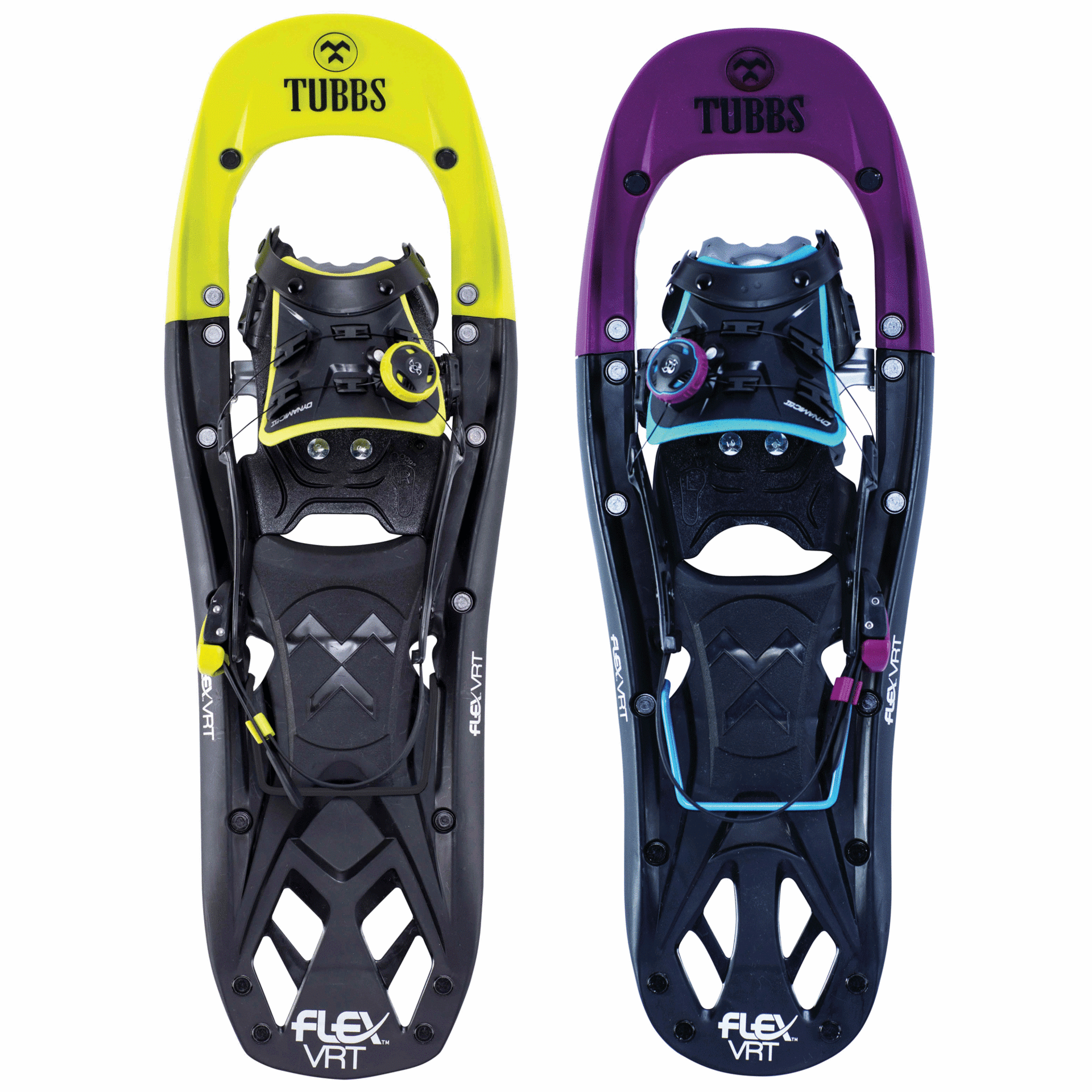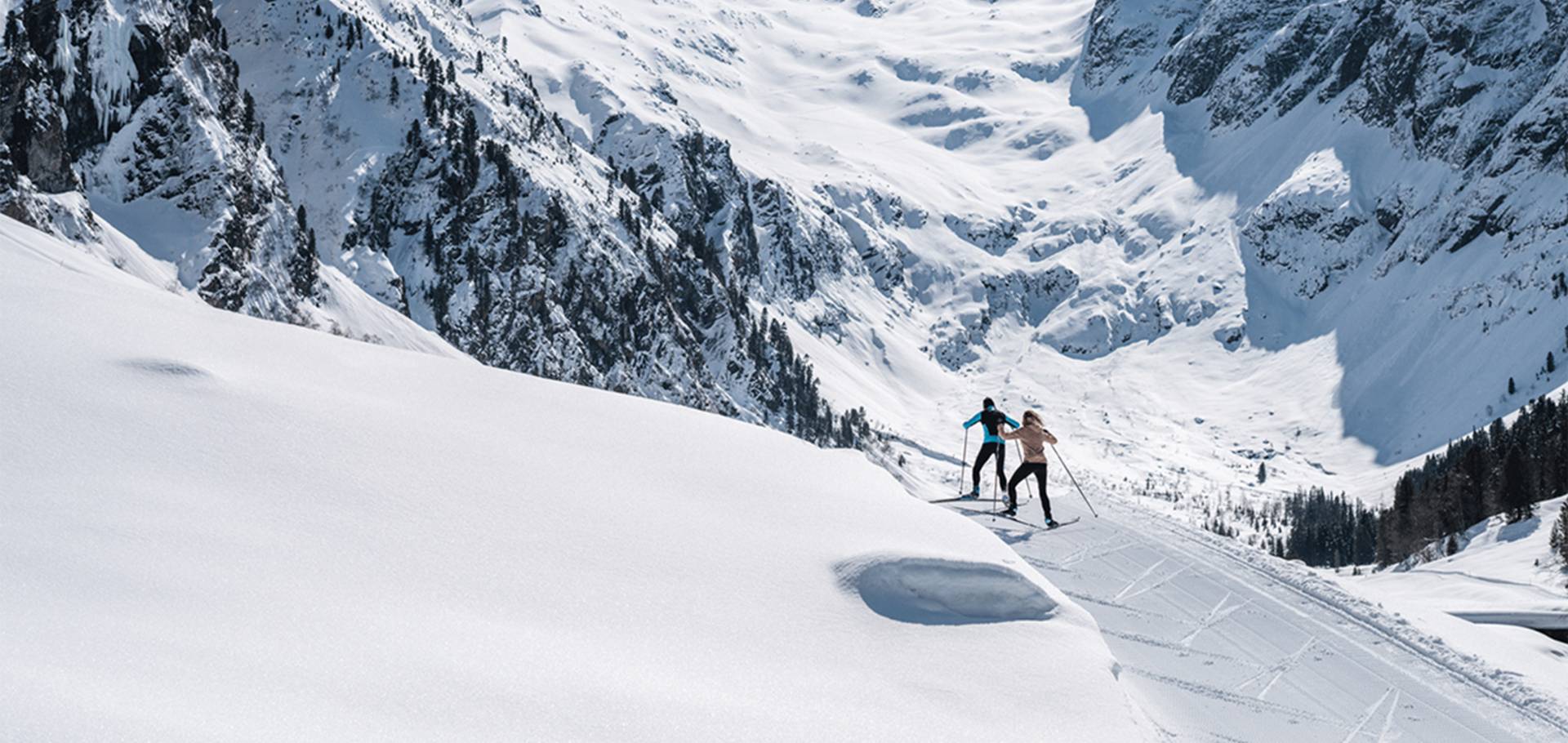
Cross-country skiing and snowshoeing
The sporting blessing for body and mind
Interesting factsCross-CountrySnowshoes

Outdoor sports form a strong basis for body and mind - cardiovascular performance improves, muscles are strengthened, it acts as an "anti-depressant" and ensures a fitter everyday life. Cross-country skiing is one of the "healthiest" sports of all, say sports scientists, and snowshoeing is also a booster for the immune system.
Numerous different definitions exist for the term health. The World Health Organisation (WHO) defined health in 1948 as follows:
„Health is a state of complete mental, physical and social well-being and not merely freedom from disease and infirmity. Enjoying the best possible state of health is a fundamental right of every human being, ...."
Sport in the open air
The two topics of sport and health are very much interrelated. If possible, sport should be done outdoors, because on the one hand sunlight increases the conversion of provitamin D into its active form, which is necessary for bone formation. And for another, it leads to an increase in the transmitter dopamine in the brain, a messenger substance that controls people's emotional life and mood. Deficits of this hormone lead to depressive moods, an increase leads to an improvement in mood. But it is not only the mood that is boosted; athletic training also reduces stress. In addition, the fun factor is much higher when exercising outdoors in nature.
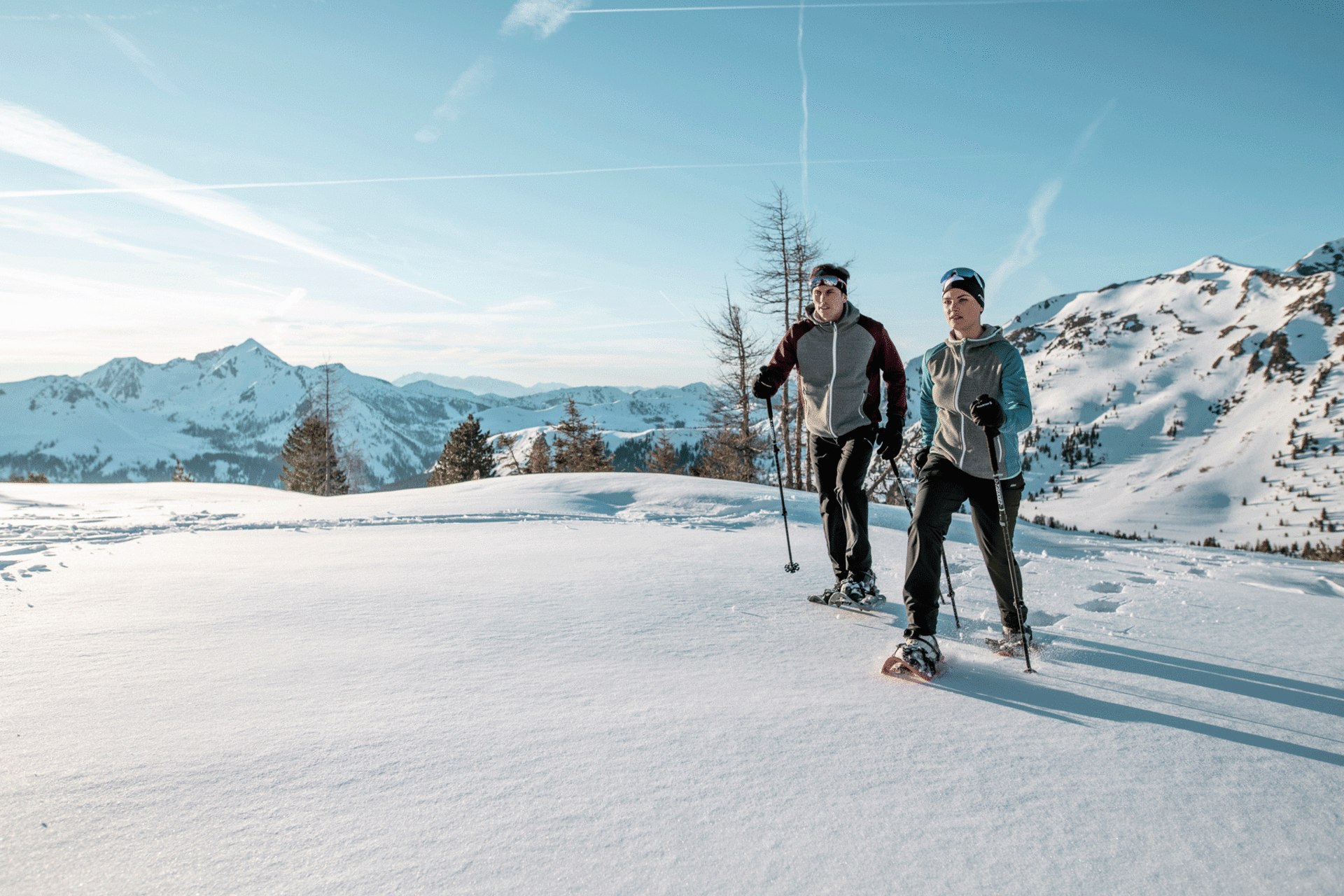
5 positive effects of sport
cardiovascular performance improves
When asked about the positive effects of exercise on the body, the first thing that comes to mind for most people is that it strengthens the cardiovascular system. But only very few can explain it. During sport, the body needs more oxygen and nutrients that transport the blood to supply its muscles and organs. As is generally known, humans adapt quickly to new situations. This is one of the reasons why regular physical activity improves the flow of blood so that it can better supply the body. Subsequently, the increased blood flow strengthens the heart. But not only the heart muscle undergoes a change, but also the vessels - they enlarge and multiply.
stable bone structure
Sport protects against osteoporosis (bone loss) and also helps those who already suffer from it. The muscles are connected to the bone by tendons. When the tendon is pulled, the bone is irritated at the point where the tendon is attached. The human organism reacts to this and strengthens the bones, which increases bone density. Simply put, by doing a lot of exercise, you put more stress on the bones, which strengthens them. It's almost exactly like strength training: the muscle gets a stimulus and then strengthens during the rest phase so that it is better prepared for the next load.
increased quality of life
Who doesn't know this feeling after a sporting activity such as a round of cross-country skiing or jogging: "You just feel fresh and active." This positive mood increases the quality of life, because sport has an almost unbelievable potential to increase it abruptly within a few weeks. You then take this change for the better with you into all other areas of your life.
risk of illness is reduced
Sick all the time in winter? Moderate activities such as cross-country skiing, snowshoeing or running strengthen the internal defences and thus make the body more resistant to pathogens. Hard training sessions stimulate the immune system and thus it automatically improves (you can think of it as building muscles). In addition, the circulation of lymph fluid is promoted, because the pathogens meet the immune cells in the lymph nodes. In this case, constant sedentary activities are counterproductive, because the immune system is geared towards movement.
happy through exercise
Sport keeps our health at a balanced level. Regular exercise in the fresh air is therefore more effective for the feeling of happiness than any medication. Physical activity releases the happiness hormones dopamine, serotonin and endorphin and they remain present for a longer period of time. While the level of dopamine slowly decreases again after exercise, that of its counterpart serotonin increases in return. Serotonin is known as the feel-good hormone, and its release creates a feeling of inner satisfaction. With regular training, the concentration of the happiness hormone increases permanently and also in many regions of the brain. A lasting increase in concentration, happiness and contentment are the pleasant side effects. And in addition, regular sports sessions ensure a reduction in the stress hormone cortisol.
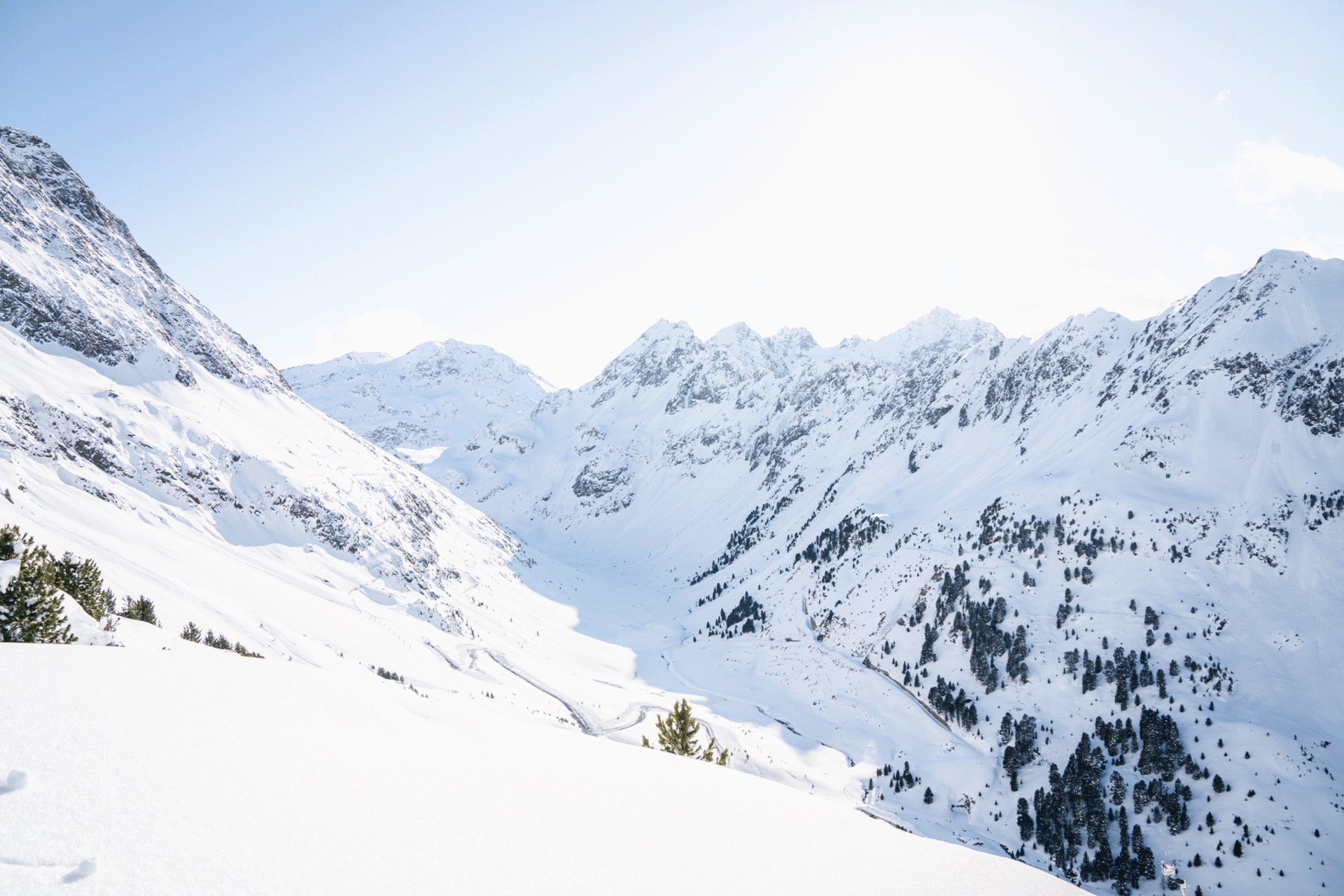
Outdoor training at low temperatures
In winter - with freezing cold and pollutants in the air - you have to pay special attention to a few points when exercising. At low temperatures, the mucous membranes dry out and the airways cool down due to the cold air. This is the reason why you should breathe in and out through your nose instead of your mouth when doing sports in winter. The body should be slowly introduced to the unaccustomed cold.
Prophylaxis:
- Shorten training times
- Reduce training intensity
- Warm up well and run in slowly
- Functional clothing necessary
Healthy and fit for the winter holiday
Cross-country skiing and snowshoeing have experienced a real boom in the past winter season and are more popular than ever. For many experts this is no surprise, especially cross-country skiing as an ideal whole-body and endurance training has been in vogue for quite some time. Corona, however, has given the sport an additional boost. The reason: both sports guarantee a lot of exercise and a unique experience of nature away from crowds.
Winter holidays are the perfect introduction to both sports. Many ski regions and hotels already offer numerous opportunities to get an optimal taste of the sport. A professional introduction, a little practice and off you go. Completely new worlds open up in the snow-covered countryside, because cross-country trails often lead into valleys or across meadows where you would otherwise not be able to go in the cold season. And with snowshoes you can make your own tracks in the snow and through the countryside.
Use your whole body
Integrate cross-country skiing into your next winter holiday; the whole body benefits. In addition to the heart, circulation and lungs, endurance, balance and coordination are also promoted. Metabolism is also stimulated, the immune system is strengthened and fat burning is activated. Added bonus: Exercise in the fresh air is good for the psyche.
Salomon RS 8 PM PLK PRO
Versatile high-performance skating ski for endurance training and aspiring competitors.
- Salomon RS 8 PM PLK PRO (RRP: € 249,99)
A boot equipped with great fit that accompanies cross-country skiers in their progress and keeps them comfortable all day long.
- Salomon RS8 PROLINK (RRP: € 189,99)
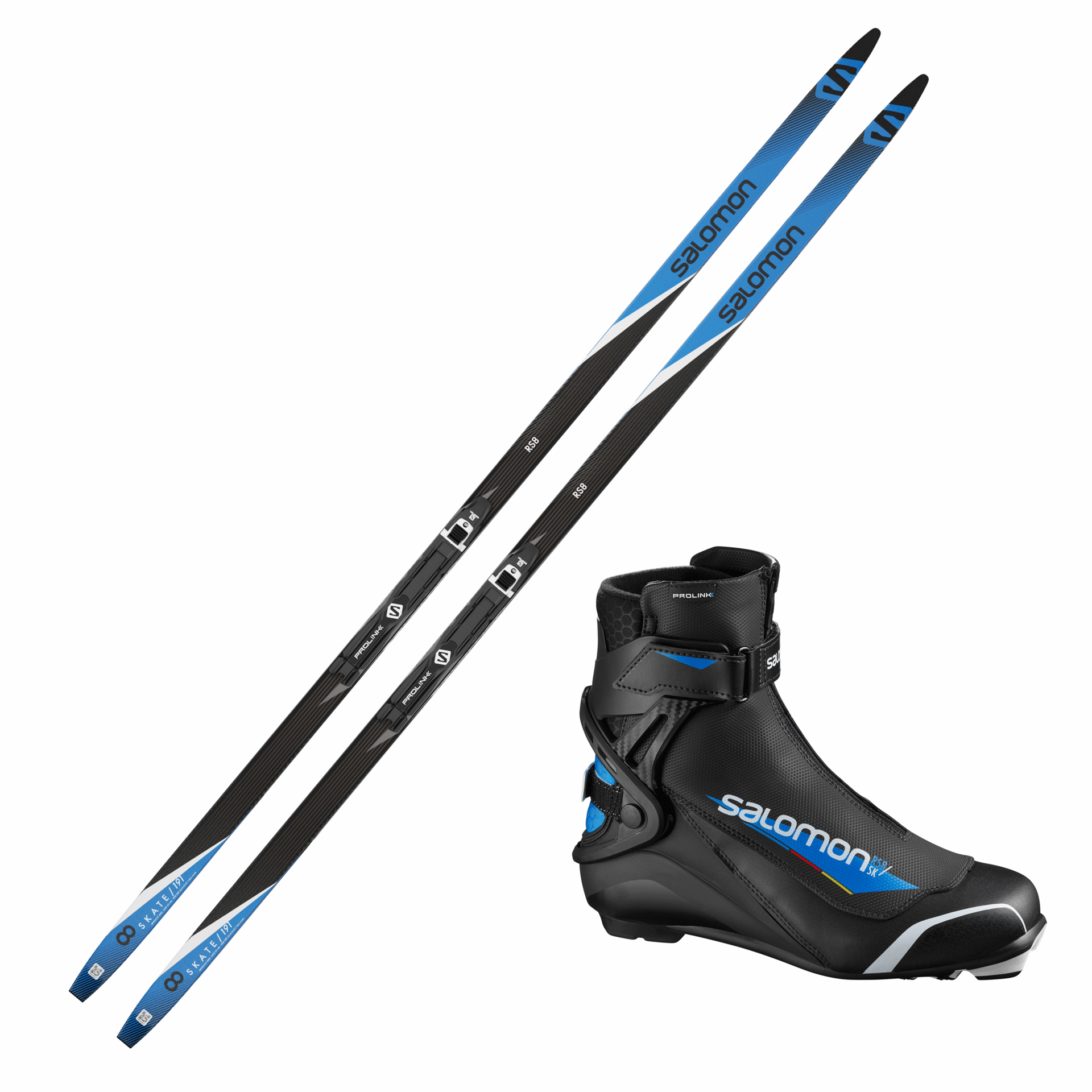
Salomon Aero 7 eSkin PM PLK Access
A ski that helps develop your skills in the classic style. This is the Aero 7 eSkin PM PLK Access (RRP: € 199.99). It gives a safe feeling and is very easy to control. The right boot for this is the Escape Plus Prolink Black/Wh/Bl (RRP: € 109.99). Just the right cross-country boot for eco-friendly outdoor adventurers who value warmth, comfort and grip when walking. It gives plenty of ankle support and has a waterproof zip for excellent insulation.
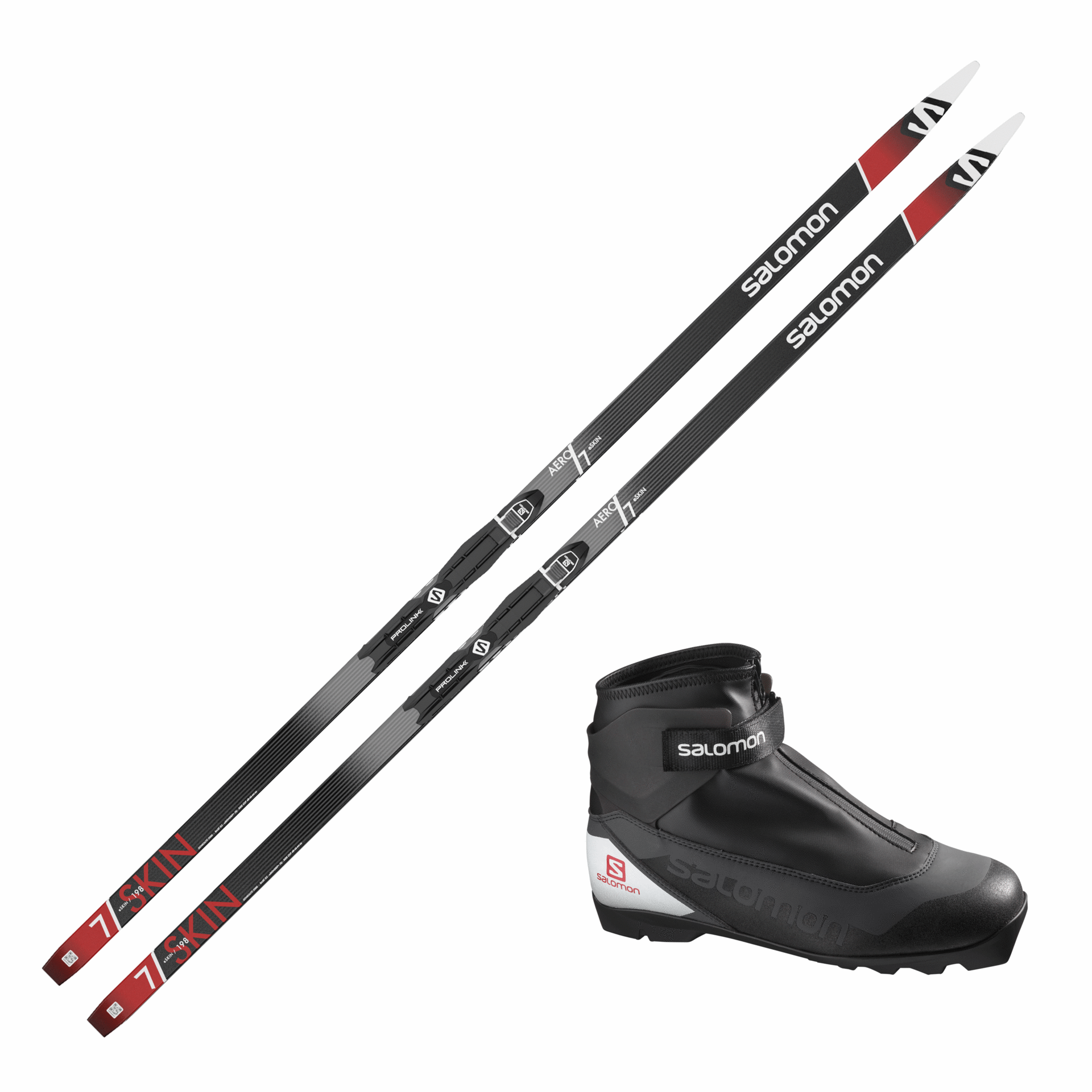
Booster for the immune system
Snowshoeing is experiencing a revival. The advantages of the sport: you don't have to know how to ski to conquer the winter landscape. And it is a real booster for the immune system and thus also for health. The movement that is exercised is steady and everyone can go at their own pace. In addition, there is the activity in the fresh air: the environment is allergen-free, there is a formation of vitamin D through the UVB radiation in the body and the absorption of calcium is promoted - the body benefits from the sun. The latest snowshoe models from TUBBS stand for perfect fit and ease of use, as all three models in the FLEX range require only one handle for adjustment.
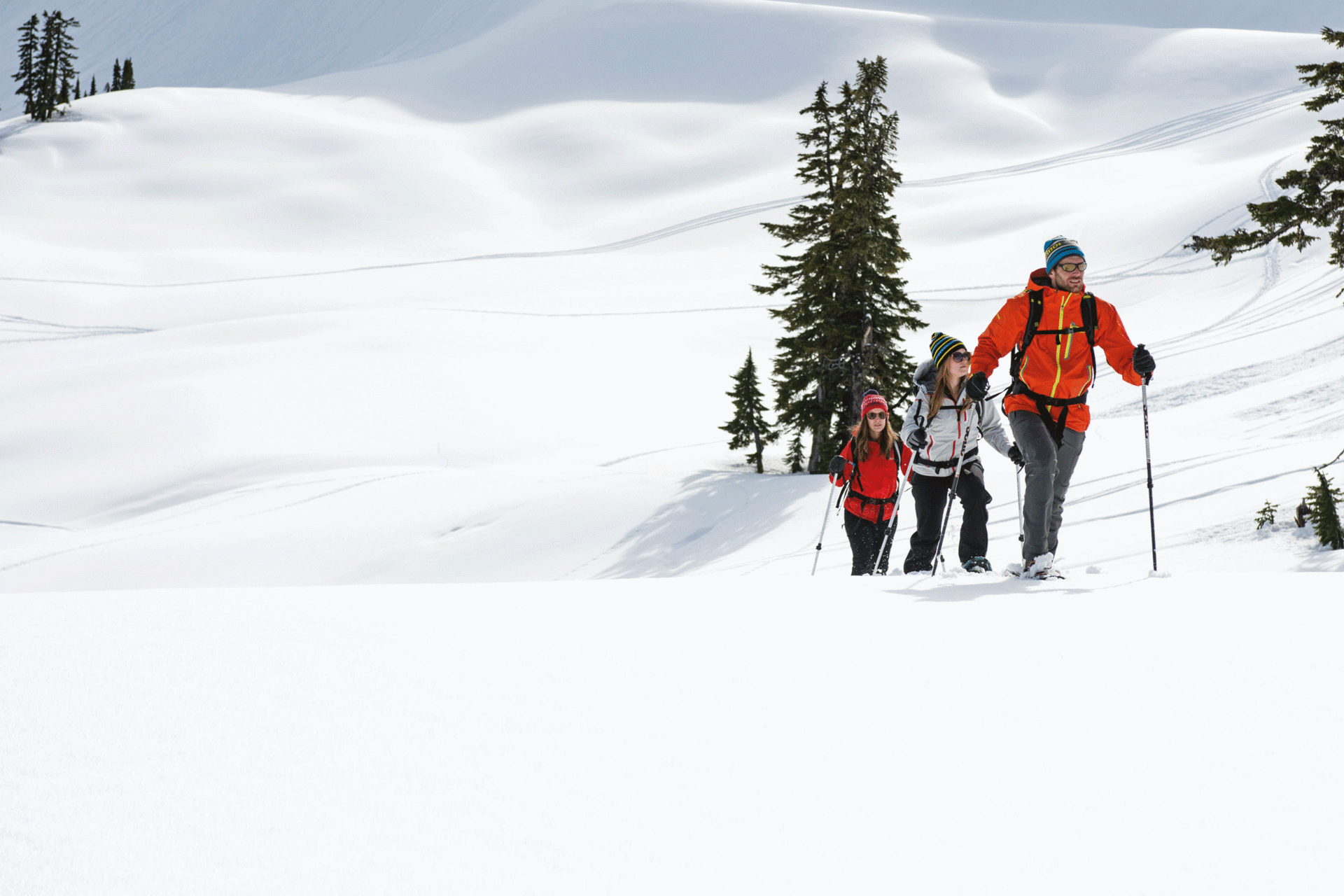
Snowshoe FLEX RDG - easy going
The FLEX RDG offers the most user-friendly binding, making it perfect for rental use and guided groups. The CustomWrap binding with Boa closure system is the only binding where the heel tab is integrated into the binding. This ensures exceptional control with the simple turn of a wheel. Direct entries are made possible by the fold-out ActiveLift climbing aid. Similar to the FLEX ALP, 3D shaped side rails provide the best grip when traversing. Like the other two FLEX models, this one also owes its optimal hold on the descent to the progressive snowbrakes. (RRP: € 199,95)
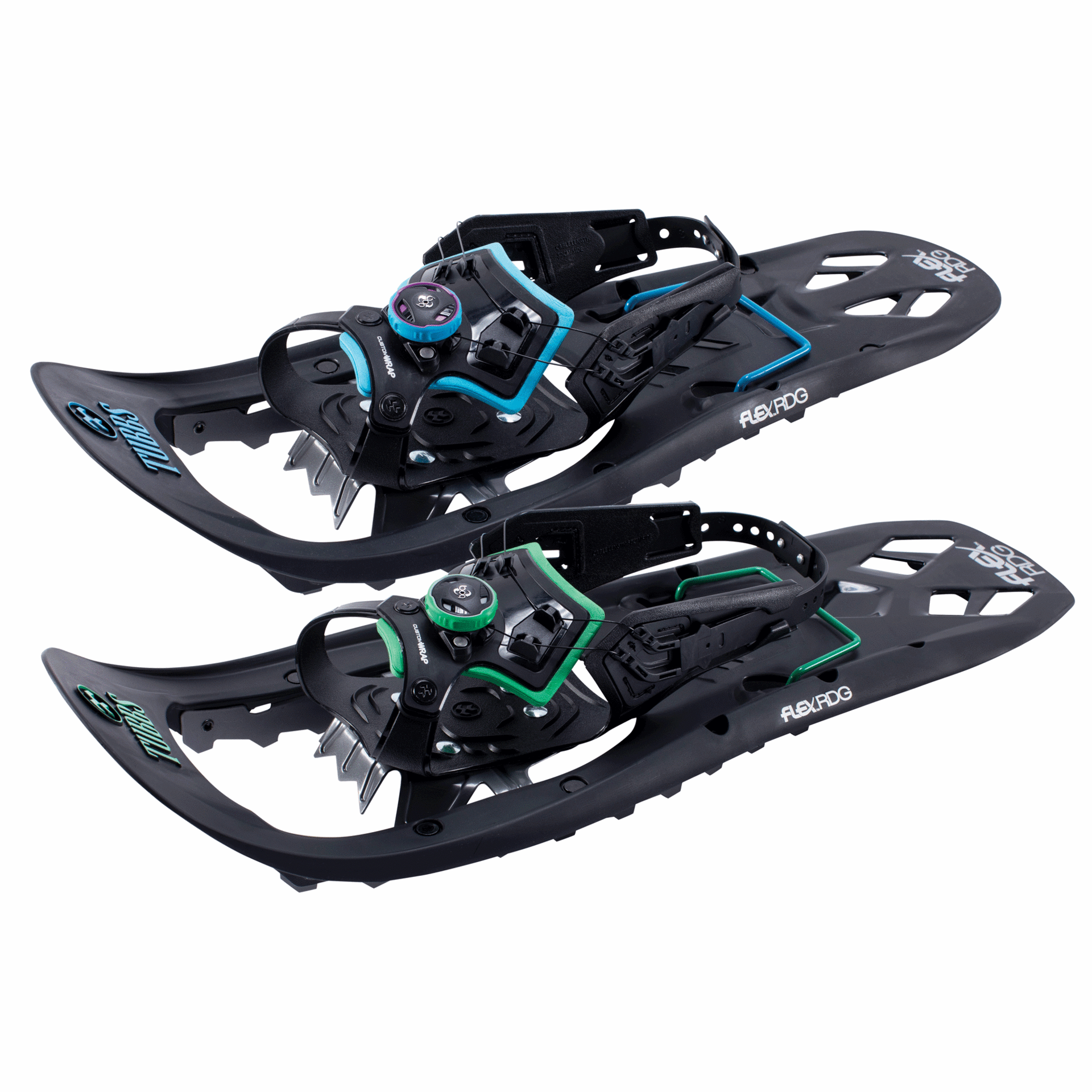
FLEX VRT snowshoe - the all-rounder.
The DynamicFitTM binding with BOA closure system ensures even pressure distribution and thus offers perfect snowshoe control in any terrain. The ascent is made easier thanks to the ActiveLiftTM climbing aid and ViperTM 2.0 front prongs maximise grip under load, as in the ALP. A natural rolling of the boot is guaranteed by the FlexTailTM. The FLEX VRT and FLEX ALP both have additional claws on the tail, which together with progressive snowbrakes provide support on the descent. (RRP: € 269,95)
